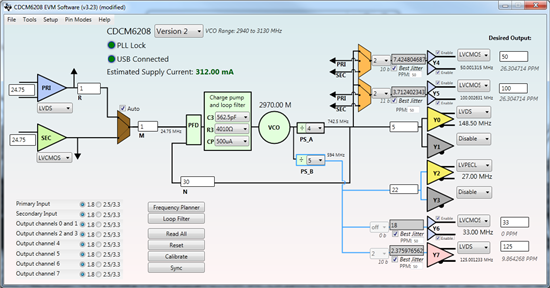Hi,
We are considering CDCM6208 to generate below frequencies.
However, the output number is not enough. Would you please provide us with a good solution ?
1. 27MHz / LVCMOS1.5V / cycle to cycle jitter +/-750ps
2. 33MHz / LVCMOS1.5V / cycle to cycle jitter +/-750ps
3. 50MHz / LVCMOS1.5V / cycle to cycle jitter +/-750ps
4. 100MHz / LVCMOS1.5V / cycle to cycle jitter 0.15UI
5. 125MHz / LVDS / phase noise -130dBc/Hz
6. 148.5MHz / LVDS / phase noise -130dBc/Hz
7. 27MHz or 74.25MHz or 81MHz or 148.5MHz / LVCMOS2.5V
Best Regards,
Kato


